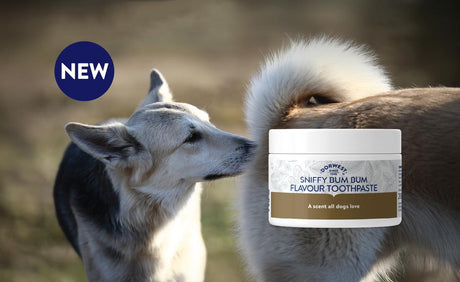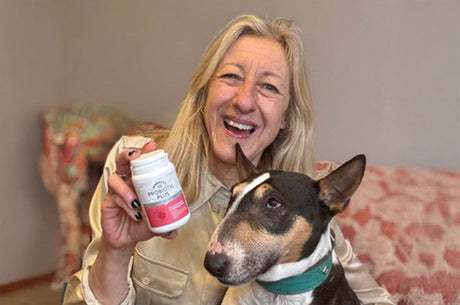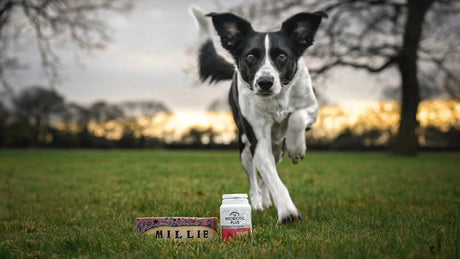
Dogs are our loyal companions. They'd do anything for us and we'd do anything for them. One of our commitments as a pet parent is to keep our dogs safe. Sadly, in recent years, despite the very best efforts of owners, this has become even harder to do due to an increase in the number of pet thefts each year. In our blog post, we explore this terrifying pet theft trend further and also provide our top tips for keeping your pet as safe as possible.
Pet theft statistics
The number of dogs being stolen has increased for the fourth year in a row. According to Pet Theft Awareness, more than 60 dogs are stolen each week in England and Wales.
For example, earlier this year, a litter of puppies were stolen in a violent home burglary. Others are stolen from homes, gardens and even public places. They are often stolen for breeding, re-sale, held for ransom or reward money.
The statistics and stories are shocking and totally heartbreaking. If this wasn't shocking enough, only 5% of these cases of dog and puppy theft lead to convictions.
Why is pet theft increasing?
Dogs are no longer simply viewed as fantastic companions. Instead, dogs are also viewed as booming business for the criminal underworld or those looking to make fast money. With some 'designer dogs' costing over £1,000 each, dogs can deliver a huge financial reward. Demand is high as we also live in a culture where we want 'next day delivery' for everything, even dogs.
The low risk of prosecution, coupled with high demand and the potential for massive financial gain means pet theft has become a risk worth taking. Any benefits associated with stealing dogs currently outweighs any potential penalties. It's easy to see why criminals are making it their business to source and sell dogs in any way they can, even if this means stealing them.
Top tips for keeping your dog safe from pet theft
So, what can we do to protect our dogs being stolen?
1. Don't have a regular schedule.
Humans tend to be creatures of habit, but by sticking to the same routine, you never know who might be watching your patterns. You could inadvertently be showing the optimum time to steal your dog. Consider varying where and when you walk your dog.
2. Microchip and collar.
It is compulsory to microchip your dog, but many forget to keep their details updated. If you move house, always ensure your details are up-to-date. The same applies for your dog's collar and ID tag, which should be worn when in a public place. The ID tag should include your name, address (with postcode) and ideally phone number too. Both of these give you the best chance of reuniting with your dog, should you become separated.
3. Keep secure.
Gardens can be a common target for thieves if fences are low. They can swoop down and lift out your dog in the blink of an eye. So, if your garden is easily accessible, it may be advisable to always accompany your dog to avoid dog theft. Dogs can fall into the wrong hands if they escape your garden voluntarily too. Do regular checks and make sure there are no opportunities for your dog to escape and take themselves out on a walk.
4. Keep your dog with you at all times.
Years ago, many dog owners would happily leave their dogs tied up outside while they popped into a shop. Sadly, with the number of dog theft instances every week, it's simply not safe to do this anymore. If you need to go to the shops, consider leaving your dog at home or leave them outside with a friend/family member while you pop in. The same applies if you leave your dog alone in your car. It's not worth the risk.
5. Be aware.
Have you noticed any strange behaviour from others while walking your dog? For instance, any unusual parked cars? Marks near to houses, which could be potential targets? If suspicious, ask other dog walkers if they've noticed anything unusual too and report to the local police. Awareness is absolutely key.
What to do if the worst happens? How to find a lost dog
1. Report it!
First and foremost, report the pet theft to the police and obtain a crime number.
2. Spread the word.
• Notify the following as soon as possible if your dog has been stolen:
• The microchip database
• Your local dog warden
• Your local vet and surrounding practices
• Local Facebook groups and other social media outlets
Also register with specialist databases, such as DogLost, who help notify the public about lost dogs in particular areas.
Spread the word as much as possible. Make your dog “too hot to handle” - it's been proven to work for some lucky dogs and their owners.
3. Monitor selling sites.
Dogs are being sold online and via social media. Check those locally to you and beyond.
4. Don't give up!
Even if your dog isn't found quickly, never give up. Keep circulating your dog on social media and in your local area. There have been some fairytale endings, with dogs being reunited years later.
Pet owners unite against pet theft
Hopefully by bringing more awareness to dog theft, we can reduce this terrible trend. It's so important for pet owners and animal lovers to continue to unite against pet theft. If you'd like to learn more, take a peek at Pet Theft Awareness or SAMPA (Stolen and Missing Pets Alliance), which update you with the latest petitions and news surrounding this topic.
In the meantime, hug your dog a little tighter today and keep aware, so you can hopefully avoid the worst from happening to you.
Dorwest Herbs are experts in herbal pet care and sell a wide a range of herbal remedies for dogs and cats. To find out more information about our herbal pet remedies, get in touch with our friendly team today on 01308 897 272, or email us at info@dorwest.com.







